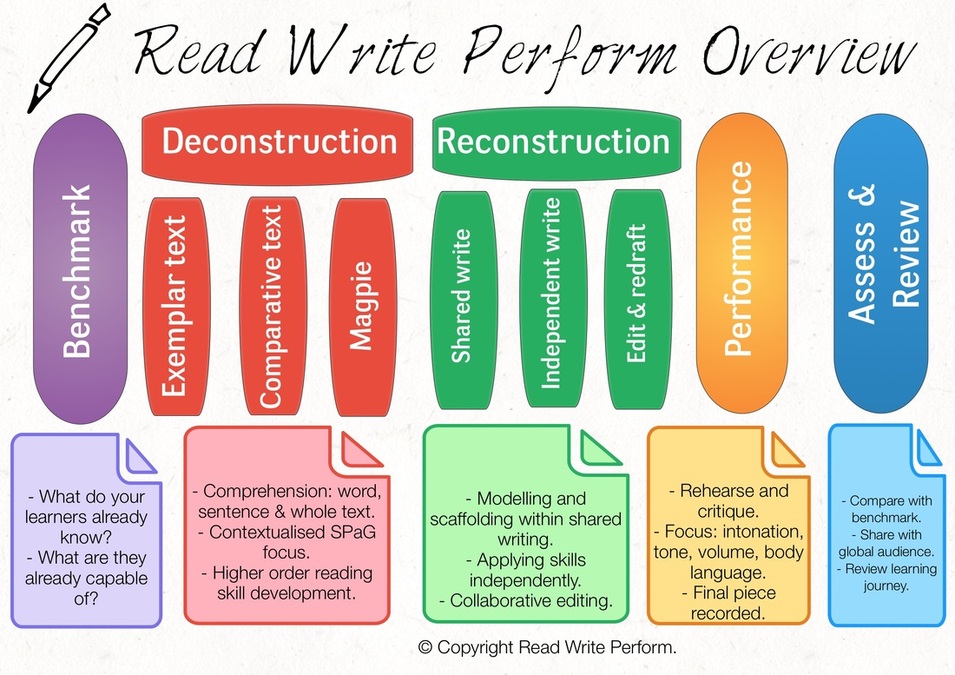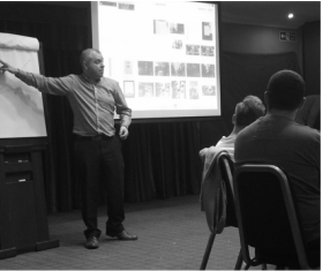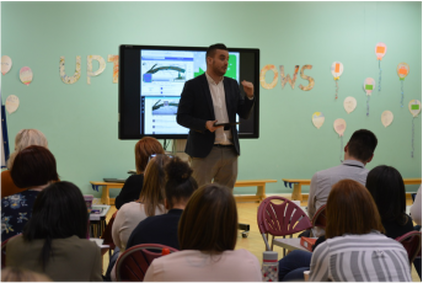Our Philosophy
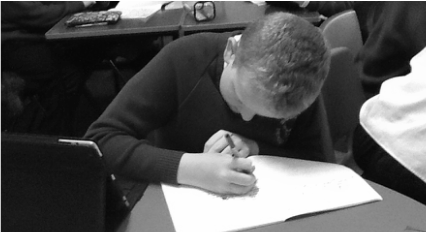
Welcome to Read Write Perform, a new and exciting approach to English that will encourage your learners to actively engage with a variety of media and get the most out of the learning experiences you provide.
Written by experienced classroom practitioners, consultants and IT specialists, Read Write Perform encourages children to apply what they have learnt in a meaningful and purposeful way in order to embed their learning.
This learning for purpose is essential if children are to focus upon and engage with the core facets of English in a coherent way.
It allows learners to make important links that are rooted within meaningful contexts, enabling them to use grammar, punctuation and vocabulary creatively in order to bring their own work to life.
Written by experienced classroom practitioners, consultants and IT specialists, Read Write Perform encourages children to apply what they have learnt in a meaningful and purposeful way in order to embed their learning.
This learning for purpose is essential if children are to focus upon and engage with the core facets of English in a coherent way.
It allows learners to make important links that are rooted within meaningful contexts, enabling them to use grammar, punctuation and vocabulary creatively in order to bring their own work to life.

For a number of years, we’ve felt that the way we teach English in primary schools has become distorted. Putting the politics of education to one side, it is clear that the present obsession with wanting to measure a child’s ‘expected’ reading and writing progress (whatever that actually means in reality) has led to the written word being put on a pedestal and the spoken word sacrificed altogether.Such are the high stakes of publishing performance data, it is not hard to understand why many have chosen to take this narrow path. However, in doing so, the teaching and learning of English has become somewhat fragmented, unbalanced. Tick-box exercises, the formulaic teaching of ‘tricks’ to gain extra marks in a reading test and the use of methods that tell children what they ‘must write’ to ensure the inclusion of a specific grammatical structure in their written work have all become common practice.
Understandable it may be, but it is to the detriment of our learners’ appreciation for, and understanding of, our beautiful language. Teaching to a test or for moderation is not an authentic learning experience, nor will it help learners engage with the learning process or help them to remember what they have been told in the longer term.
It is of no great surprise to English practitioners that Y7 learners continue to be a particular concern in terms of both their progress and overall attainment at the start of KS3. Who wouldn’t suffer greatly if all you had been fed was a diet of quick tricks and hollow learning for the past 12 months, all for short term gains?
Such an unbalanced view of the English language fails to recognise the inherent relationship between the written and the spoken word; it fails to provide learners with the broad and balanced approach essential when learning to express our thoughts and emotions effectively. Good learning lasts. It lasts because it is an authentic experience. It lasts because the learner has engaged with it, has understood the ‘why’ and not just the ‘what’, and has been given the opportunity to reflect on their overall journey. It carries meaning and is valued. It is for this reason that we wanted to developed a new child-centred approach to the teaching of English, one that values all aspects of English and bring them together in a cohesive and engaging way, where children understand how these elements work and are able to apply what they have learnt in a creative way.
We wanted to create an approach that allowed individuals to grow in confidence and supported them on their journey to find their own voice.
This approach is not driven by assessment.
Yes, the children will produce work that can be moderated. Yes, their reading skills will develop and their vocabulary improve, but most importantly, learners will make progress as a by-product of effective and engaging teaching and learning. If the aim of teaching English is to help build strong and effective communicators – individuals who have a genuine love for this beautiful language we call English and who are masters of it – then we can have no better purpose. It is with this philosophy that Read Write Perform was created. More importantly, it is this philosophy that drives its approach.
Real writers read. They do so because to hear the voice of fellow writers, helps them to discover and improve their own. If you want to be a creative, then surround yourself with creativity. This is where our journey begins.
First, the class considers an ‘exemplar text’, one that exemplifies the final piece that they are aiming to create. The deconstruction of this text affords learners the opportunity to understand the genre itself. It helps them gain a greater understanding of the language choices an author has made. Why has the author chosen this word or used that language? What effect does it have on the text? What effect does it have on the reader? Now that we have considered the model text, it’s important to look at how other writers have tackled the same genre and begin to question where similarities and differences lie. The use of comparative texts is essential if we are to move away from simply using a single text or experience as a ‘hook’ to engage and motivate future writers. Instead, by offering a variety of texts from a range of authors, learners begin to appreciate the limits and freedoms to which all writers are bound and, more importantly, begin to value the writing process itself.
Understandable it may be, but it is to the detriment of our learners’ appreciation for, and understanding of, our beautiful language. Teaching to a test or for moderation is not an authentic learning experience, nor will it help learners engage with the learning process or help them to remember what they have been told in the longer term.
It is of no great surprise to English practitioners that Y7 learners continue to be a particular concern in terms of both their progress and overall attainment at the start of KS3. Who wouldn’t suffer greatly if all you had been fed was a diet of quick tricks and hollow learning for the past 12 months, all for short term gains?
Such an unbalanced view of the English language fails to recognise the inherent relationship between the written and the spoken word; it fails to provide learners with the broad and balanced approach essential when learning to express our thoughts and emotions effectively. Good learning lasts. It lasts because it is an authentic experience. It lasts because the learner has engaged with it, has understood the ‘why’ and not just the ‘what’, and has been given the opportunity to reflect on their overall journey. It carries meaning and is valued. It is for this reason that we wanted to developed a new child-centred approach to the teaching of English, one that values all aspects of English and bring them together in a cohesive and engaging way, where children understand how these elements work and are able to apply what they have learnt in a creative way.
We wanted to create an approach that allowed individuals to grow in confidence and supported them on their journey to find their own voice.
This approach is not driven by assessment.
Yes, the children will produce work that can be moderated. Yes, their reading skills will develop and their vocabulary improve, but most importantly, learners will make progress as a by-product of effective and engaging teaching and learning. If the aim of teaching English is to help build strong and effective communicators – individuals who have a genuine love for this beautiful language we call English and who are masters of it – then we can have no better purpose. It is with this philosophy that Read Write Perform was created. More importantly, it is this philosophy that drives its approach.
Real writers read. They do so because to hear the voice of fellow writers, helps them to discover and improve their own. If you want to be a creative, then surround yourself with creativity. This is where our journey begins.
First, the class considers an ‘exemplar text’, one that exemplifies the final piece that they are aiming to create. The deconstruction of this text affords learners the opportunity to understand the genre itself. It helps them gain a greater understanding of the language choices an author has made. Why has the author chosen this word or used that language? What effect does it have on the text? What effect does it have on the reader? Now that we have considered the model text, it’s important to look at how other writers have tackled the same genre and begin to question where similarities and differences lie. The use of comparative texts is essential if we are to move away from simply using a single text or experience as a ‘hook’ to engage and motivate future writers. Instead, by offering a variety of texts from a range of authors, learners begin to appreciate the limits and freedoms to which all writers are bound and, more importantly, begin to value the writing process itself.
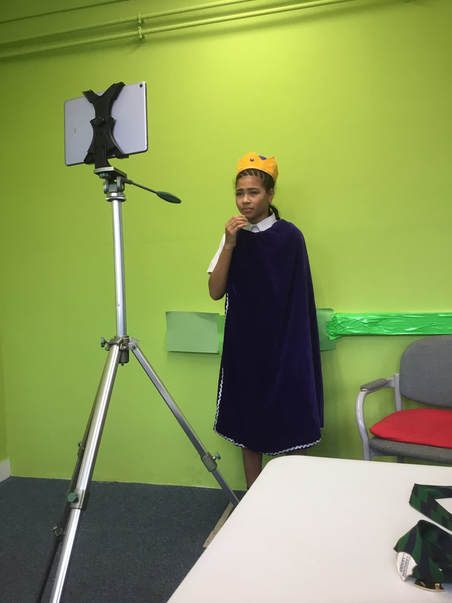
It is during the deconstruction of these texts at word, sentence and whole text level that core reading skills are developed. This enables children to interrogate the text and authorial choices much more confidently. In this sense, they are applying higher order reading skills that have been taught explicitly during guided reading sessions in an authentic and purposeful way. ‘Reading into writing’ is the key that unlocks creativity and understanding. It supports and encourages children to develop their own writing style and nurtures their creativity. It gives them ownership of the writing process. To start, the teacher spends a lesson modelling a ‘shared write’. This demonstrates how to reconstruct the written work and focuses on why particular sentence structures and features are to be used. Learners are given time to play around with these suggestions, which eventually leads into writing their own independent piece of work. It is important to note that these suggestions are seen as a set of tools, rather than rules. If an individual wants to use ideas and language of their own, they are encouraged to do so. To shackle learners to a series of instructions that begin with ‘You must’ stifles independence and restricts the creative process. It leads to shallow learning.
Now that the final piece has been written, it is all about the performance. Far too often, children create an amazing piece of work and this is where the journey ends. The teacher marks it, the book is closed and the work is never seen again. But what if you access technology in a way that empowers children to creatively transform their written work into a more engaging form of media, opening it up to a much wider audience? Not only will this improve their digital literacy skills, but it will enhance their overall communication skills and confidence levels too. Speaking and listening should never be seen as the poor cousin to reading and writing. They are an integral element of English. Adept speakers – those who can emote their work and connect with their audience, who bring their work to life in a meaningful and purposeful way – are the learners who possess greater depth. The human voice, with its power to engage and empower, should not be taken for granted. It is why a performance element must is included. It allows the shy to step forward and the least confident to stand proud. It is a powerful tool that should be embraced and encouraged. A well-rounded education is what all teachers aspire to achieve for their learners. It is our sincere belief that child-centred learning is the beating heart of what we do in schools. It is why we became teachers. It is what keeps us in the profession.
Such learning is not curriculum driven. It does not pander to the whims of government ministers or the current political party. It has integrity. It endures.
We sincerely hope that you and your learners love this approach as much as we do.
Now that the final piece has been written, it is all about the performance. Far too often, children create an amazing piece of work and this is where the journey ends. The teacher marks it, the book is closed and the work is never seen again. But what if you access technology in a way that empowers children to creatively transform their written work into a more engaging form of media, opening it up to a much wider audience? Not only will this improve their digital literacy skills, but it will enhance their overall communication skills and confidence levels too. Speaking and listening should never be seen as the poor cousin to reading and writing. They are an integral element of English. Adept speakers – those who can emote their work and connect with their audience, who bring their work to life in a meaningful and purposeful way – are the learners who possess greater depth. The human voice, with its power to engage and empower, should not be taken for granted. It is why a performance element must is included. It allows the shy to step forward and the least confident to stand proud. It is a powerful tool that should be embraced and encouraged. A well-rounded education is what all teachers aspire to achieve for their learners. It is our sincere belief that child-centred learning is the beating heart of what we do in schools. It is why we became teachers. It is what keeps us in the profession.
Such learning is not curriculum driven. It does not pander to the whims of government ministers or the current political party. It has integrity. It endures.
We sincerely hope that you and your learners love this approach as much as we do.
The Read Write Perform Approach:
Both Lee and John provide training for schools throughout the UK and beyond focusing on the Read Write Perform approach.
|
John is a Literacy Consultant who specialises in Reading Development & Comprehension.
For information regarding the training John provides, click the link below. |
Lee provides training that focuses on how to use technology to raise standards across the curriculum. For more information regarding the training Lee provides, click the link below:
|
|
John is a Literacy Consultant who specialises in developing children’s reading comprehension.
He has worked in a variety of schools and situations since 1997, teaching children with specific language difficulties and in communities where English is not the first language. He is the author of Reading Explorers, widely recognised as one of the most successful Guided Reading programmes in the UK and sold worldwide. Reading Rocketeers is his new Reading Intervention series. His aim is to help both school and learner look forward, improve their performance and secure best practice. Above all, it is to enhance and promote a lifelong love of the written word. John also provides CPD Training and is often invited to be a guest speaker at key educational events. His seminars and training focus specifically on how to nurture the developing reader and support them on their journey to success. |
Lee has been a Primary School teacher for over a decade and continues to work each week in his school.
Lee successfully deployed a class set of iPads across a whole primary school and works with children from EYFS through to Year 6 focusing on how technology can enhance teaching and learning throughout the curriculum. Lee always puts learning first and is constantly looking for creative and innovative ways in which technology, such as the iPad, can be utilised effectively to positively impact on writing & reading skills as well as developing key numeracy skills. Lee is on a mission to help teachers make the most of technology to help with every aspect of their role including: planning, feedback and assessment. His motto is to help teachers work 'smarter not harder.' Lee has already supported many schools in using simple yet effective technology - from a real teacher with a wealth of practical ideas that really work! |
